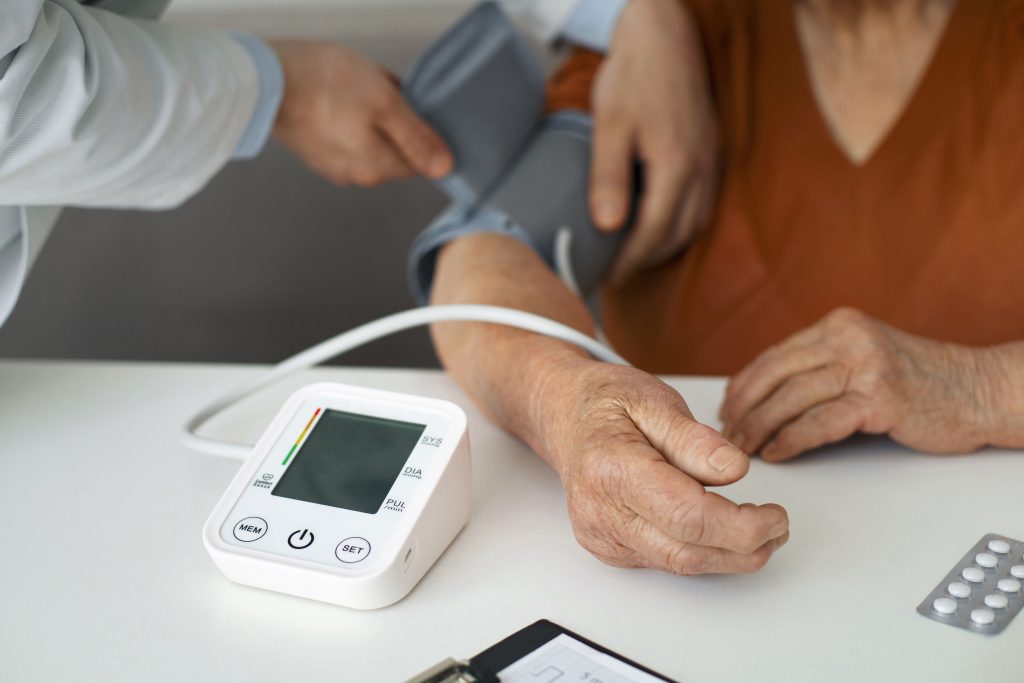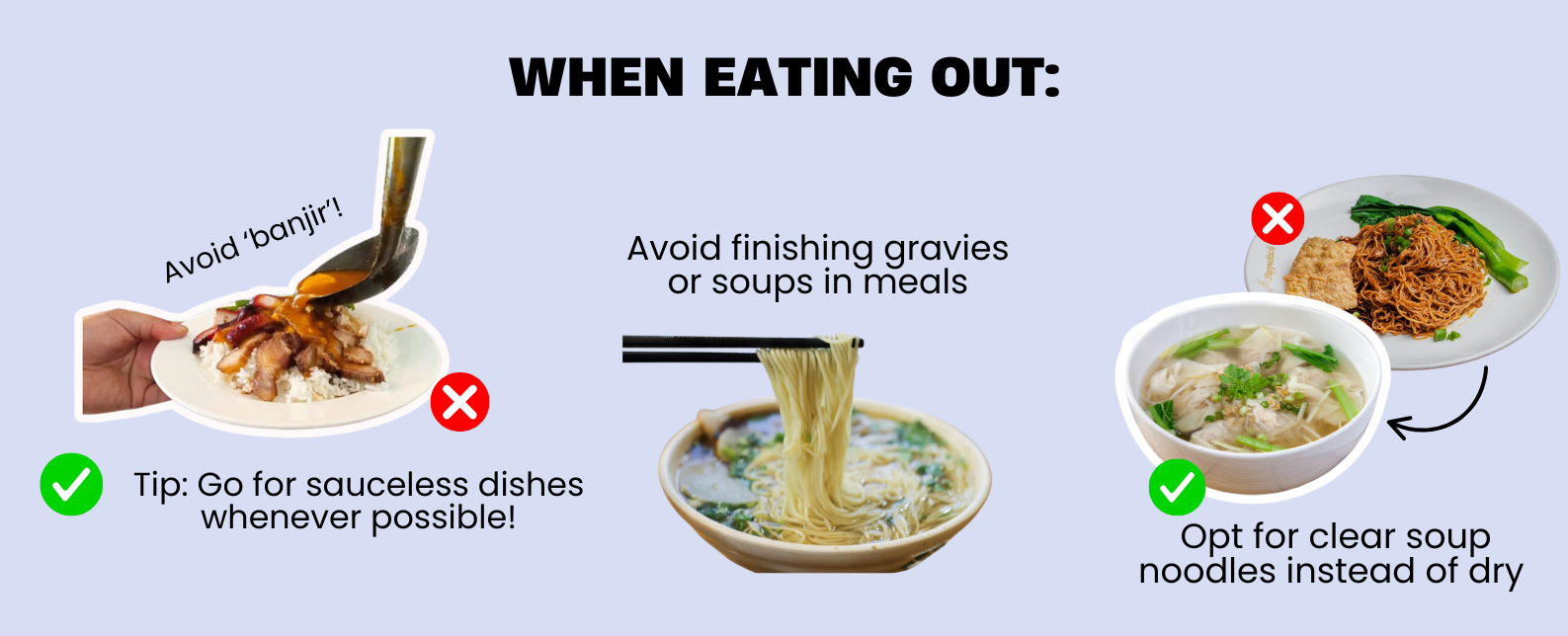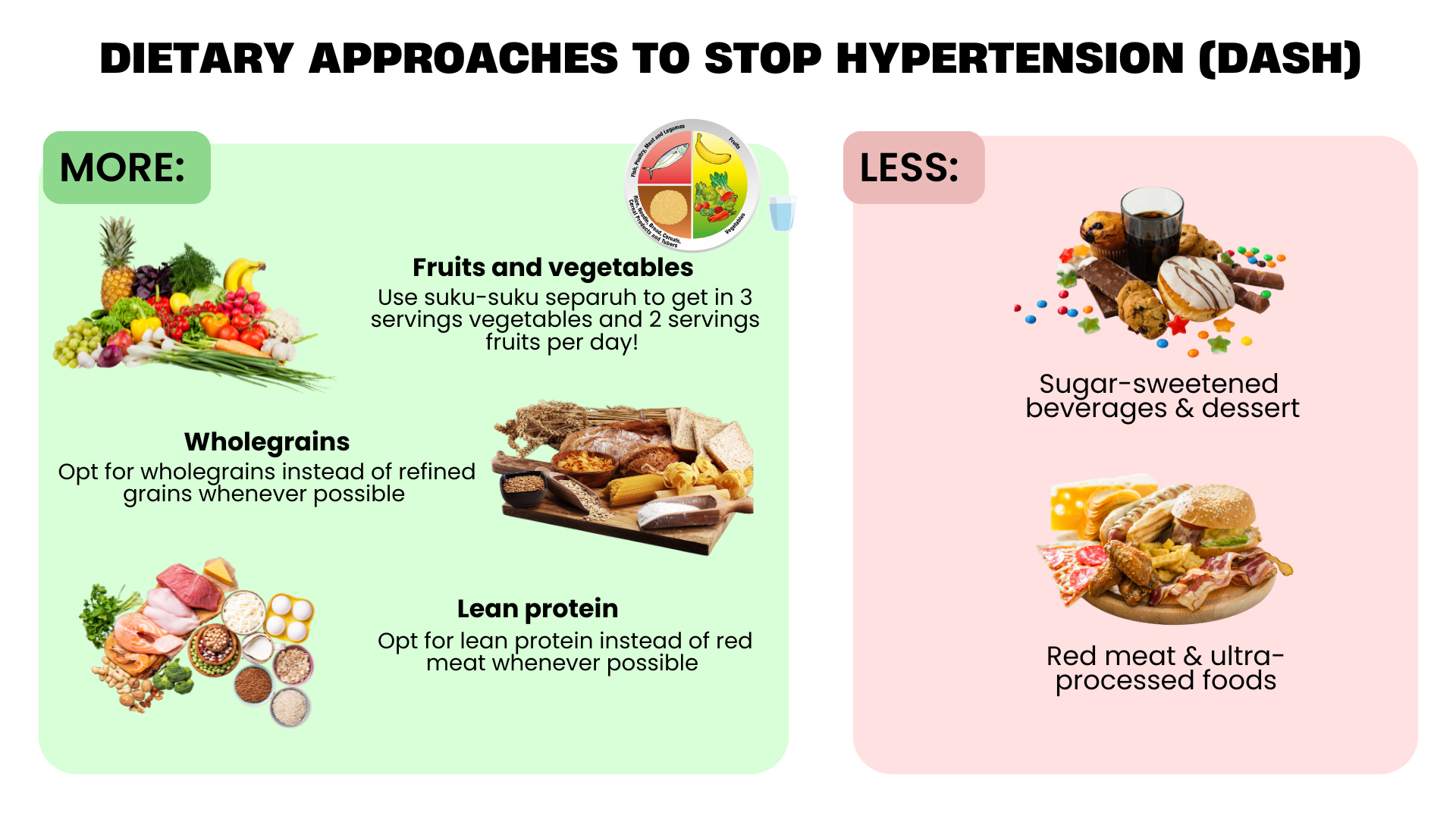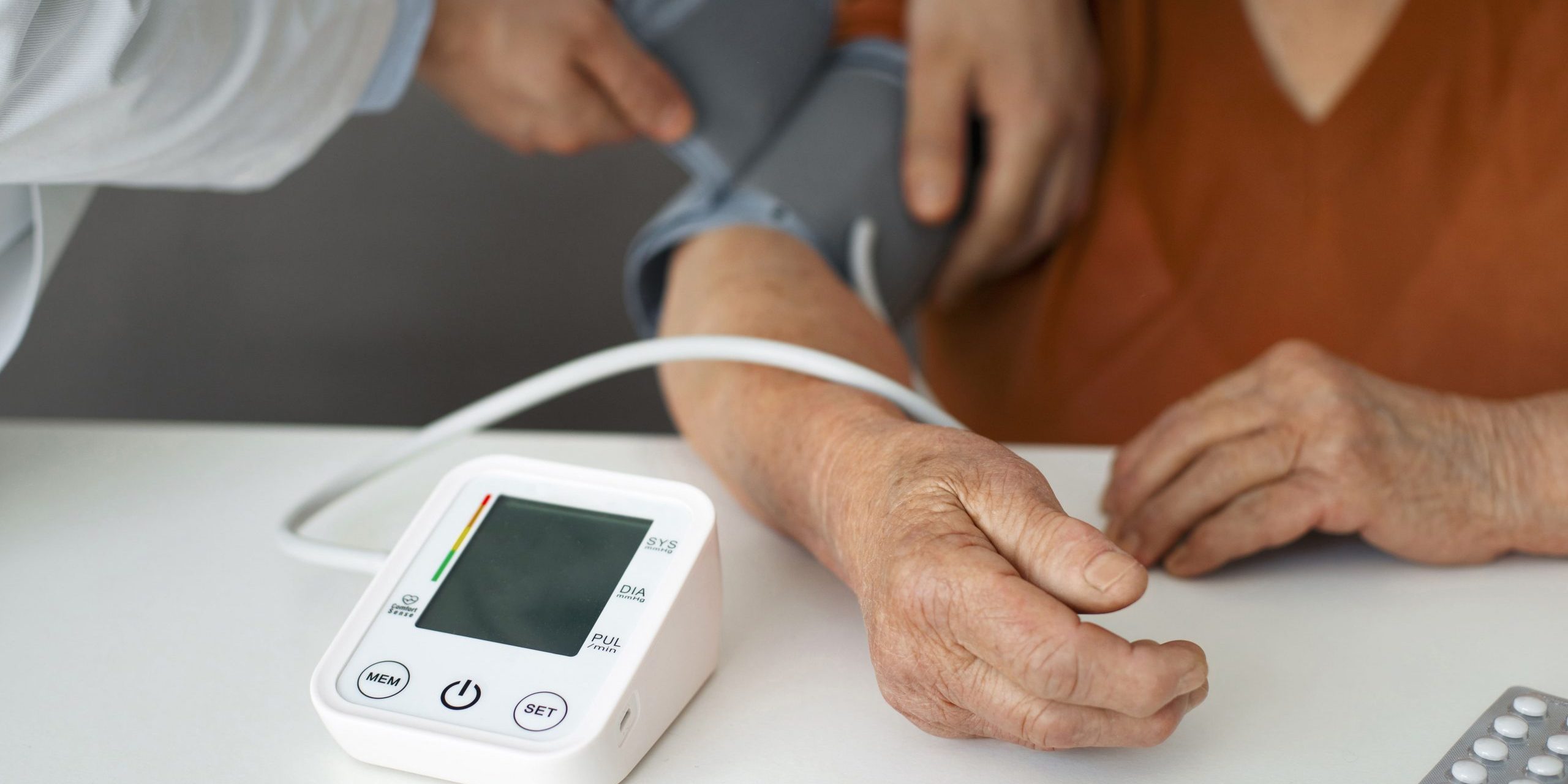
What is Hypertension?
Often called the “silent killer,” hypertension (high blood pressure) occurs when the pressure in your blood vessels remains consistently high. It may not show symptoms at first, but over time, it increases the risk of heart disease, stroke, and kidney failure.
In Malaysia, hypertension is a growing concern, with many adults unaware they have it until serious complications arise. Factors like genetics, ageing, stress, and especially poor dietary habits play a big role in its development.
How Diet Affects Blood Pressure
Malaysian food is rich in culture and flavour — from nasi lemak and curry mee to roti canai and rendang — but it’s often high in salt, saturated fat, and sugar. These ingredients, especially excess sodium, can raise blood pressure by causing the body to retain water, putting extra strain on your heart and blood vessels.
The daily recommendation for sodium is 2000mg, which roughly equates to 1 teaspoon of salt. Nevertheless, exceeding this number may be much easier than we’d think – sodium hides in more places than we think: from the obvious sources like soy sauce, sambal, belacan, processed meat, and keropok, to the unassuming ones like soups, butter, caramel, taukua, and our favourite hawker dishes.
To optimise our health, it is then important to stay mindful of the sodium sources and adopt smart practices to reduce our intake whenever possible.
Key Dietary Tips to Lower Blood Pressure
Here are some small but powerful changes that can help manage or prevent hypertension:

1. Smart practices when eating out:
- Avoid ‘banjir’ – go for sauceless dishes when possible; but if you despise dry chapfan (we get it), opt for clear vegetable sauce, and limit it at 1 scoop at most!
- Avoid finishing gravies or soups in meals
- Opt for clear soup noodles instead of dry noodles
2. Cut back on salt when cooking
- Go for fresh ingredients whenever possible and season with herbs, lime, garlic, or spices
- Aim for less than 5g of salt a day (about 1 teaspoon)
- Did you know that MSG only has ⅓ the sodium content of salt? Try partially substituting salt with MSG to enhance your dishes with its umami flavour while cutting back on sodium (e.g. swapping 1 tsp of salt to ½ tsp of salt and ½ tsp of MSG)
3. Follow the DASH Diet (Dietary Approaches to Stop Hypertension)

DASH: More fruits, vegetables, whole grains, and lean protein; less sugar, red meat, and ultra-processed foods.
Eat more:
- Fruits and vegetables – These foods are rich in fibre, magnesium, antioxidants, and potassium – all of which regulates blood pressure. Potassium in particular helps to balance out the effect of sodium in our body!
- Wholegrains – Whole grains like brown rice, oats, and wholemeal bread are higher in fiber compared to refined grains. They help control cholesterol, manage blood sugar, and support satiety, which contributes to healthy weight maintenance — an important factor in blood pressure control.
- Lean protein – Sources like skinless chicken, tofu, fish, beans, and legumes provide essential amino acids without the high saturated fat content of processed or fatty meats. Including plant-based proteins is also encouraged for additional fiber and heart health benefits.
Eat less:
- Sugar – Excess sugar, especially in sweetened beverages and desserts, contributes to weight gain and increases the risk of metabolic syndrome, which is closely linked to hypertension.
- Ultra-processed foods – These often contain hidden sodium, unhealthy fats, added sugars, and artificial additives. Limiting them reduces excess sodium and supports better blood pressure control.
By limiting these foods, we also make more room for more nutritious food choices in our diets!
Beyond the Plate: Supporting Habits That Matter
While limiting sodium is the most straightforward way in combating risk of hypertension, it is also vital that we adopt supporting habits that would also improve our overall health – and hence sustaining our changes!
💧 Stay Hydrated
Drinking enough water helps regulate sodium balance and supports kidney function.
🛒 Read Food Labels
Check for sodium content in food – the lower, the better! Aim to keep your daily sodium intake below 2000mg.
🍽️ Practice Mindful Eating
Slow down during meals. Pay attention to hunger and fullness cues, and try to eat without distractions like phones or TV.
🏋🏻♀️ Move for Your Heart
While food plays a central role, physical activity is another key to healthy blood pressure. Even 30 minutes of brisk walking five days a week can help keep your heart strong. Pairing a balanced Malaysian diet with regular movement gives your body the best chance at long-term health.
This World Hypertension Day, let’s rethink our plates and routines — because managing blood pressure starts with small, consistent changes.













